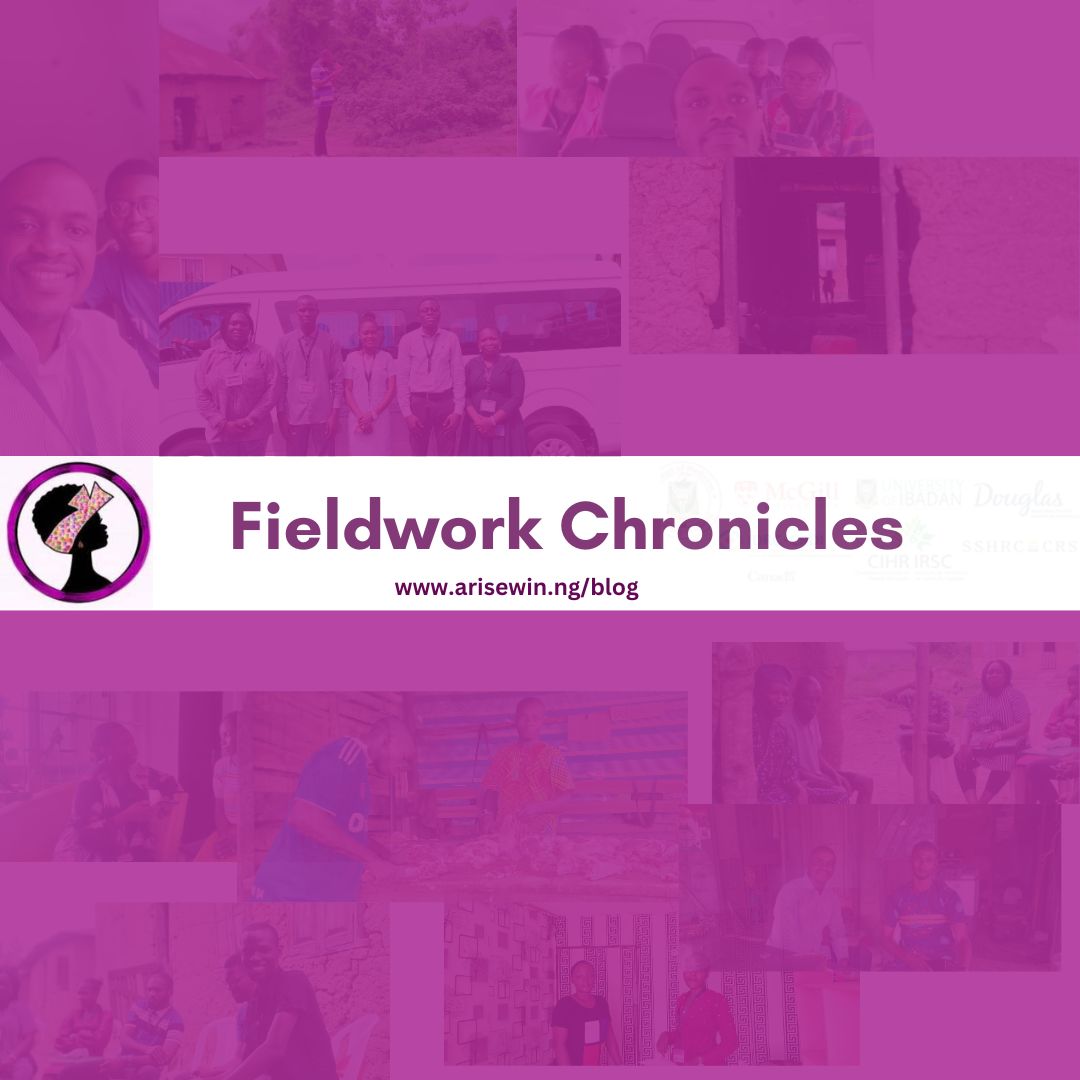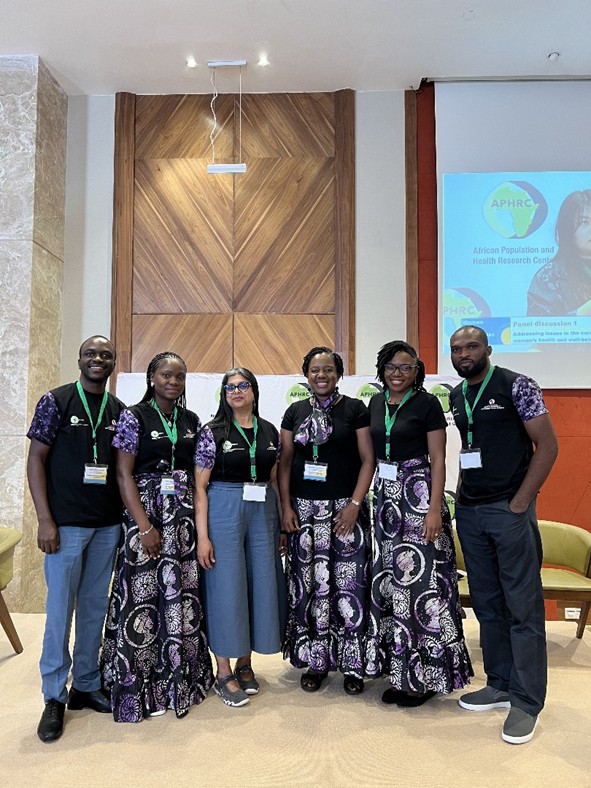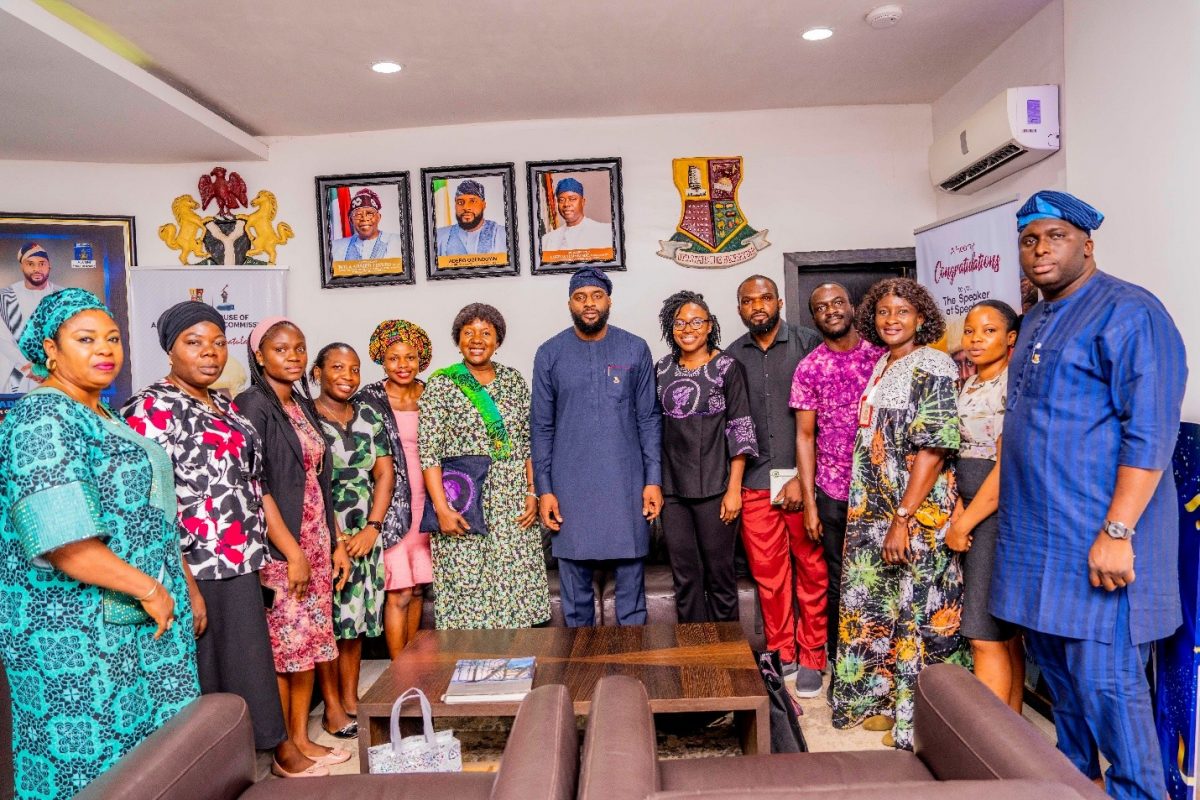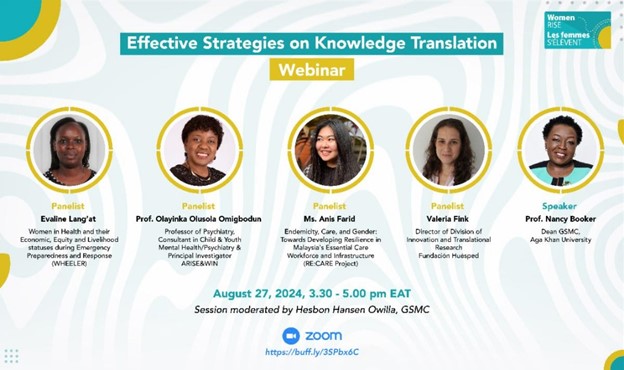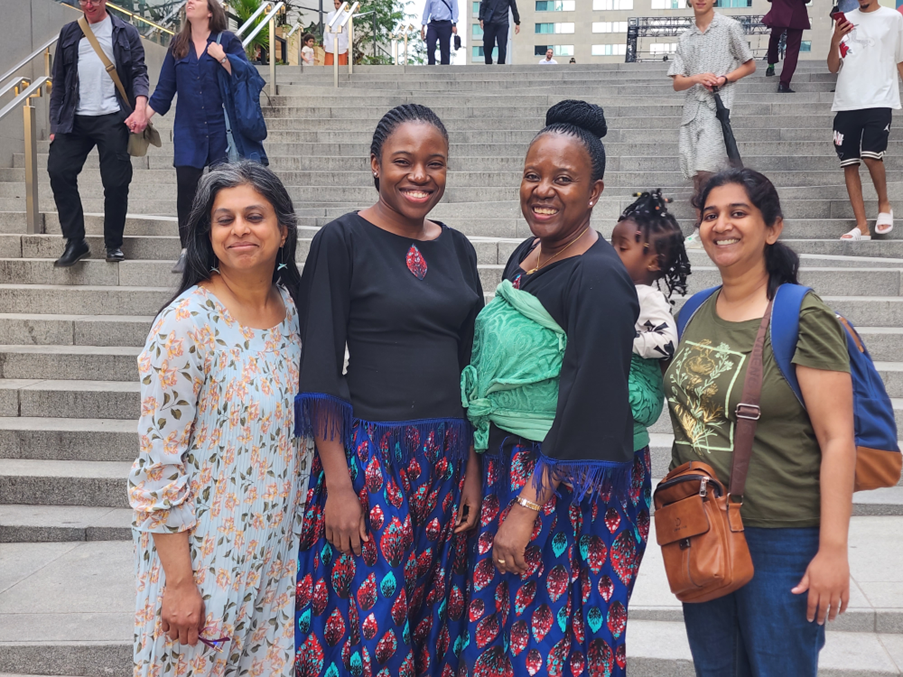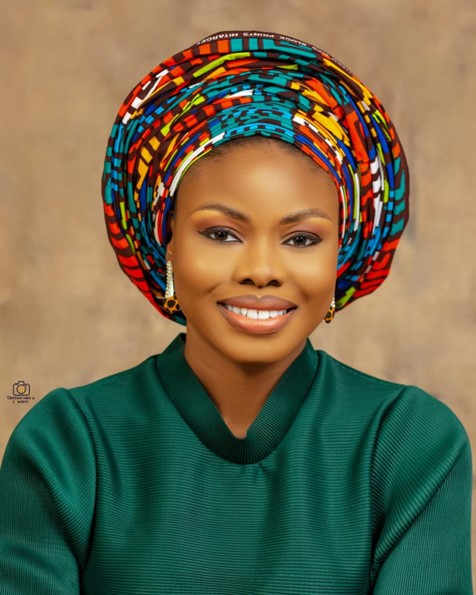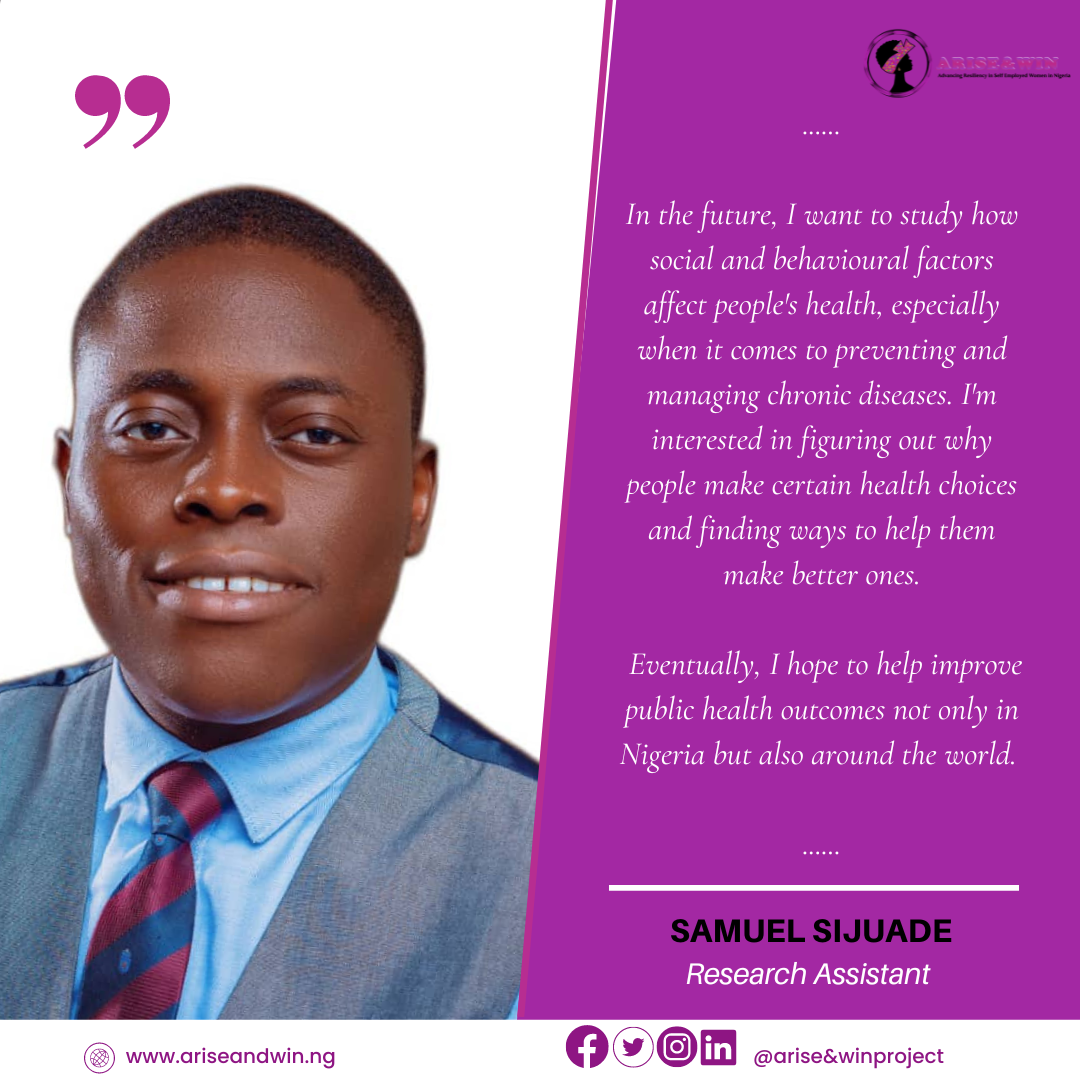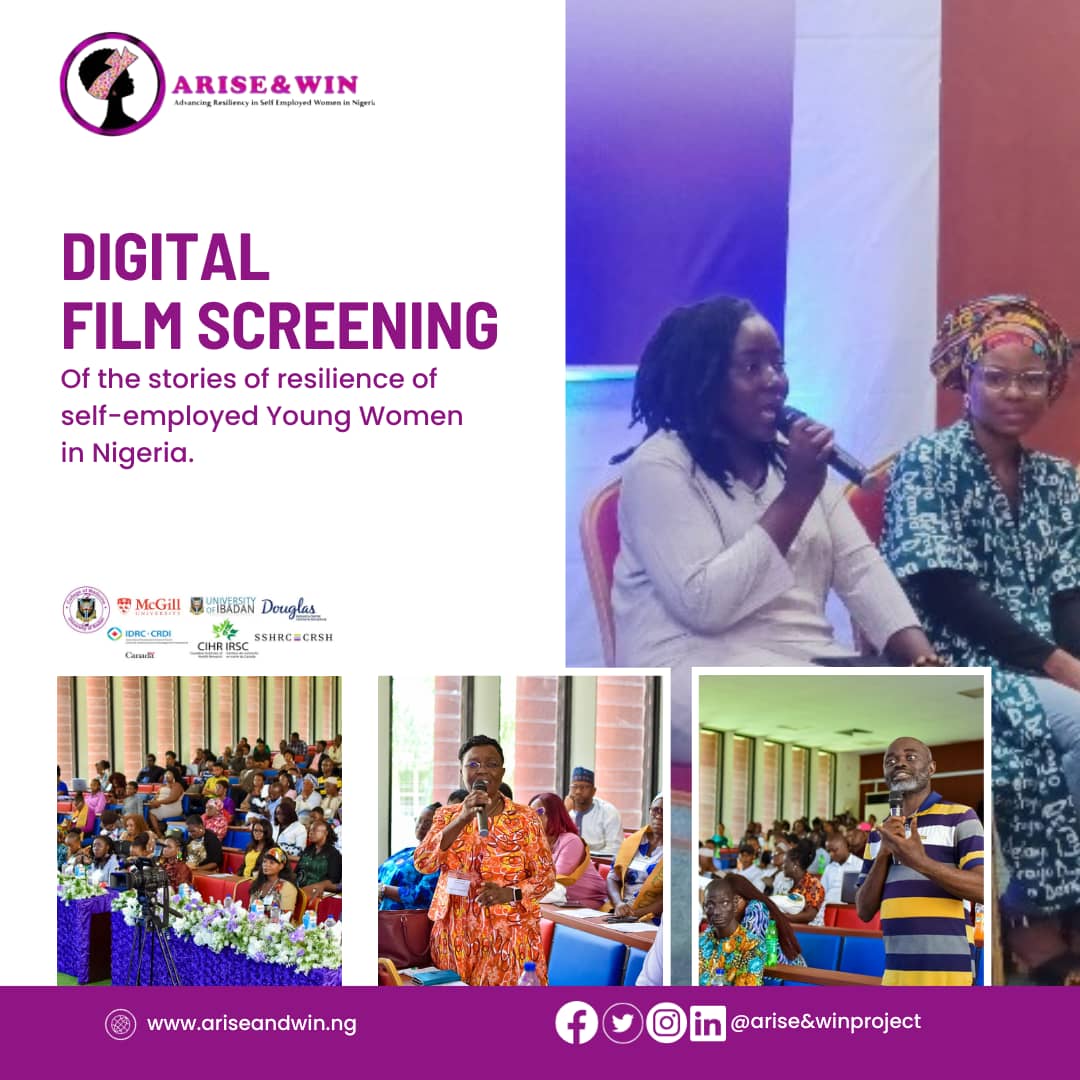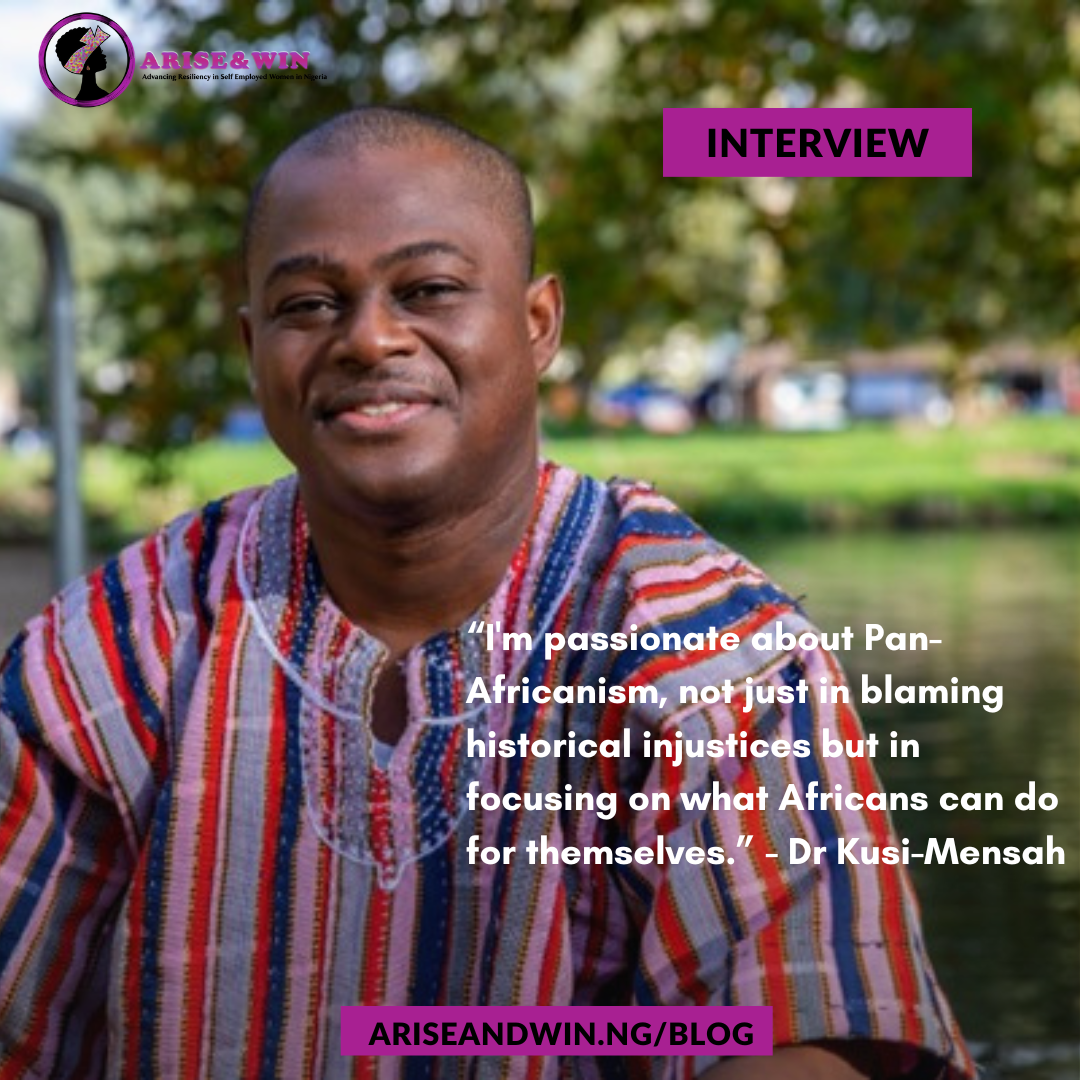Embarking on the Advancing Resiliency in Self-Employed Young Women in Nigeria (ARISE&WIN) Project’s fieldwork has brought together a diverse team of researchers, united by a common goal to understand the lives and experiences of self-employed individuals in Nigeria and develop better supportive structures for self-employed young women. This blog post documents the experiences and reflections of the fieldworkers who conducted semi-structured interviews and Focus Group Discussions (FGDs) with self-employed young women, members of their support network, and policymakers. Through these chronicles, we aim to capture the highs and lows of our adventures on the field.
Facilitating a Focus Group Discussion (FGD) with self-employed young women stands out as a memorable experience for me during our fieldwork. I had conducted individual interviews with self-employed young women in the past for other research projects, but this was my first time facilitating a focus group discussion and it was interesting to see the group dynamic effect. I was pleasantly surprised at how willing the women were able to open up and share about their perspectives and experiences. As the women shared their stories, other women in the FGD will often nod their heads or make sounds in affirmation. It was like they had finally found other people who had had similar experiences and they could identify with each other. Some of the women mentioned how it was nice to have a space like this where they could talk about issues that affect them. Some of the participants were also able to learn about programmes for self-employed young women that they did not know about prior to the FGD. At the end of the FGD, it was gratifying to see women who did not know each other before begin to exchange their contact information and promise to keep in touch. I had always hoped that the findings from our FGD will help develop interventions that will make the lives of self-employed young women in Nigeria better but it was gratifying to be able to see the FGD become a space that was making their lives better (even if not by a great amount) in that particular moment. – Iyeyinka Kusi-Mensah
I have had a great time interacting with the respondents on the field. One thing that stood out for me was the need to “LISTEN!” I gained a better grasp of how much information people can share when they perceive that you are truly listening to them. It was about listening to both the verbal and non-verbal responses without being judgmental. Many of the self-employed young women have a restricted social life. Most of their interactions are with their employees and subordinates, giving instructions, and with their customers. They hardly have time to socialize with people who can listen to them. I enjoyed being that person who could listen to them express how the COVID-19 pandemic, marriage, childbirth, high turnover of apprentices, business fluctuations, and other uncertainties affect them as self-employed women in Nigeria.
My experiences on the field have also opened my eyes to the need for a working support system for women, both self-employed and wage-employed. I can personally relate to the struggle for balance, the disruptions caused by marriage and childbirth, and the restorative power of a good support system for better productivity. I hope we can reach many women through our work and I look forward to co-producing workable interventions that will improve the well-being of self-employed women in Nigeria. – Dr. Oyeteju Odufuwa
This is my second time conducting field research, and the experience has been astonishing. I was initially shocked at how willing people were to share their stories about their past and their visions for the future. I listened as women, in particular, told tales of trauma and resilience with strength and dignity. I had gone to the field unsure if respondents would open up to a stranger, but they did. We conversed as though we hailed from the same clan. I was especially moved by the stories of how people and their businesses survived the days of COVID-19.
The memories of my time in a particular village are forever etched in the sands of time. I met children who were innocent, joy-filled, and so carefree despite the communities’ lack of basic social amenities. I met a husband who lied about his wife’s age just so she could be interviewed and another who aggressively barred his wife from communicating with members of my team. I met youths with forlorn gazes; their faces betrayed their frustration at the state of affairs in their communities. Most importantly, I saw a community in need of help, and now more than ever, I am committed to evidence-driven and impactful research. – Dr. Opeyemi Ajibola
As the program coordinator, my responsibilities during our fieldwork included scouting for self-employed individuals in Ibadan to participate in the semi-structured interviews, working closely with the field manager to ensure a seamless data collection process, working closely with the data manager to follow the approved data management plan, and participating in conducting interviews.
On the field, I gained insights into the challenges faced by self-employed workers such as limited access to capital and lack of support from the government and others. While most participants were eager to share their experiences irrespective of age, some self-employed individuals were not willing to participate in the interview, having already lost hope in the system. The self-employed men and women also expressed a lot of interest in the nature of interventions that our project will be able to provide.
I was also surprised to discover that a lot of the villages around Ibadan are inhabited by migrant communities from within and outside Nigeria who have specifically come to farm. – Timothy Ibe
In the course of our fieldwork, I have found myself immersed in the lives of individuals whose stories are often untold—those whose resilience and vulnerability paint a poignant picture of our collective human experiences. As I conducted interviews with a shoe seller, a generator repairer, a farmer, and a seller of phone accessories, I witnessed the intricate tapestry of their lives unfold. What struck me the most was the trust they placed in me, as their narratives, punctuated with phrases like “I have never told anyone this…” or “I didn’t want to talk about this…”, revealed their deepest struggles and challenges in life and businesses. You could tell that they were all trying to figure out life like everyone. In those moments of openness and shared vulnerability, I was humbled by their trust, and it became clear that their stories hold profound insights into the human spirit. – Oluwaseun Abimbola
As the data manager, my job was to ensure that all technology-related aspects were set up daily for data collection and storage. This included preparing tablets equipped with REDCap data collection software and audio recorders. I also had to ensure that the collected data was secure and anonymized following ethical best practices. It has been an interesting experience, and I have learned a lot on the job. At the beginning of data collection, ensuring everyone used the instruments correctly posed a challenge, especially since I was also new to the process. However, as time progressed, we have gained more experience and things are now running much more smoothly. – Tijesumi Adebiyi
From scouting for people to interview under the scorching sun to actually sitting down and talking to people about their lives, the whole experience has been nothing short of wholesome. The greatest eye-opener for me was having the privilege to engage with an individual who is visually impaired with a spouse that is also physically challenged. It expanded my narrow worldview and taught me to see several issues from lenses other than my own, to explore the angles and perspectives to every situation, and above all, it has increased my capacity for understanding the human mind and the endless possibilities that could be explored.
It has given me the rare opportunity to not just collect data but engage with others in a deeper way that transcends the superficial or shallow level. Finally, for someone like me, who has always had imposter syndrome, this gives me a sense of purpose. I feel like I am finally doing some good. Talking to others has not only been therapeutic for them but also for me. I feel like I am helping others to help myself. – Nafisah Abdussalam
It was an interesting experience for me to conduct a few of the interviews in Yoruba. It was quite intriguing to hear people’s experiences in my native language outside the corridors of academia. Some of the interviewees chose to be interviewed in Yoruba so that they could fully express their experiences and challenges. However, these experiences are unique and compelling. By conversing in Yoruba, I was able to capture the richness and depth of their experiences, ensuring that their voices were accurately represented in the research. – Oluwaseyi Oyebode
In the one-month span of data collection for the ARISE&WIN Project, I have encountered various experiences that have shaped my understanding of qualitative research. Following the research protocol during scouting proved essential in identifying suitable participants, but it also involved navigating the uncertainties of potential respondents’ moods and willingness to participate. Some interviews had to be terminated due to misinformation provided by interviewees during scouting. I found it fascinating to discover a significant migrant population in rural areas, taking on occupations that locals were abandoning. Despite their language acquisition, the superficial understanding of the local language posed communication barriers during interviews. These experiences have taught me the importance of adhering to the protocol while remaining adaptable to the dynamic realities encountered during fieldwork. – Samuel Sijuade
As the focal secretary responsible for qualitative data collection in the ARISE&WIN project, leading the team to the field has been a profound learning experience for me. It has instilled in me a greater sense of responsibility, accountability, awareness, and proactiveness to excel in my role. The fieldwork was filled with mixed emotions as we encountered diverse realities at every outing. Some moments were near-perfect with smooth logistics and willing respondents, while others were more of a challenge due to transportation hitches and unexpected refusals. However, I have developed a resilient “can-do” spirit, which has helped me navigate challenges effectively. Engaging with respondents during interviews has opened my eyes to the uniqueness of people’s experiences, even among self-employed individuals. I have learned the importance of dexterity in eliciting information from respondents and have evolved to become a better interviewer with each experience. Overall, from scouting to data collection, this fieldwork has been a holistic and cherished journey for me. – Dickson Ogunkunle
The interviews, focus group discussions, and data management processes have provided us with a deeper understanding of the challenges faced by self-employed individuals and the potential avenues for improvement. Looking ahead, we recognize the significance of translating these findings into tangible interventions. We remain committed to evidence-driven research and collaboration with stakeholders to effect positive change.
